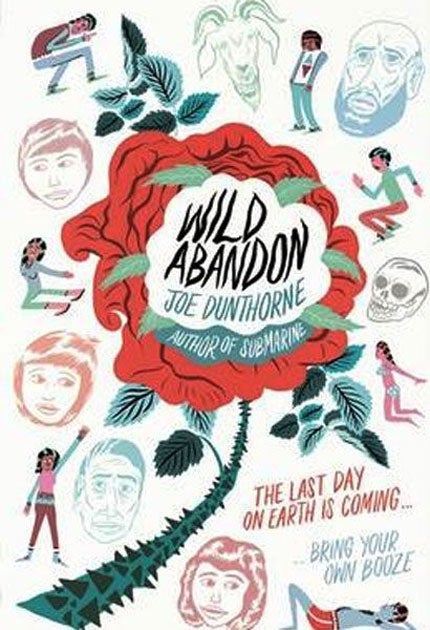Wild Abandon, By Joe Dunthorne
Wry eye on community of outsiders

Your support helps us to tell the story
From reproductive rights to climate change to Big Tech, The Independent is on the ground when the story is developing. Whether it's investigating the financials of Elon Musk's pro-Trump PAC or producing our latest documentary, 'The A Word', which shines a light on the American women fighting for reproductive rights, we know how important it is to parse out the facts from the messaging.
At such a critical moment in US history, we need reporters on the ground. Your donation allows us to keep sending journalists to speak to both sides of the story.
The Independent is trusted by Americans across the entire political spectrum. And unlike many other quality news outlets, we choose not to lock Americans out of our reporting and analysis with paywalls. We believe quality journalism should be available to everyone, paid for by those who can afford it.
Your support makes all the difference.Joe Dunthorne's debut novel was the impishly off-kilter comedy Submarine, recently adapted for the cinema. Wild Abandon is just as funny, and acutely perceptive, while showing a deepening of this writer's emotional range. The scene has shifted west from Swansea to the tip of the Gower peninsula, where the post-hippy, anti-consumerist "community" (not commune) Blaen-y-llyn has thrived, more or less, for 20 years, with its polytunnels, its homemade 'Ad-Guard' to slide in front of the television, and its gradually ebbing membership.
At its centre is a decidedly unstable nuclear family: unofficial leader Don and his wife Freya, whose relationship is, well, fraying, and their two children, 11-year-old Albert and 17-year-old Kate. There is, too, a snake in the grass: Marina, who is convinced that the world is going to end very soon (a supermassive black hole and a galactic eclipse, as predicted by the Mayans, in case you wondered), which wouldn't be a problem if she didn't seem to be winning young Albert over.
There's not much plot. Founder member Patrick has a paranoid episode and ends up in hospital. Kate, who has a day pass to go to school at the local comp, finds her first boyfriend and, through him, her first experience of suburban life. It is her studies, too, that afford the book its climax, an A-Level results party that Don plans, complete with massive sound system, in the hope it will attract new blood to the community.
Dunthorne's talent is not for the dramatic, but for the imaginative. During Patrick's disappearance, for instance, when Don gives the order for the commune's emergency mobile phones to be switched on: "Making their way in the dark, they were able to mark Don and Freya's progress by the distant sound of months of text messages and voicemails finally coming home." It's that kind of detail that makes the book throb with life.
Dunthorne is most merciless in his skewering of Don, who is as self-important a do-gooder as Mike Leigh ever put on screen. From the unconscious smooching noises he makes when he's about to kiss Freya to his manly chats with Albert, this is a book to make men of a certain age and beard weep with shame and recognition, and their wives to seriously consider following Freya's example and move out to a mud-walled roundhouse at the bottom of the garden. Thankfully, in Kate, Dunthorne has proved he can write a thoroughly likeable, well-adjusted character. Assume, too, that Wild Abandon will hit our cinema screens before too long.
Join our commenting forum
Join thought-provoking conversations, follow other Independent readers and see their replies
Comments